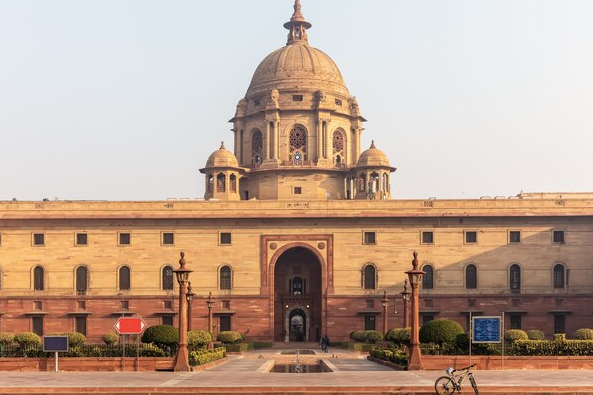Supreme Court: Party Still Liable for Violating Injunction Order Even After It’s Set Aside


The Hon’ble Supreme Court (“SC”) in a recent case, clarified that the subsequent setting aside of an injunction order does not absolve a party from liability for disobeying the order during its validity. The Hon’ble Division Bench, comprising of Justice Pankaj Mithal and Justice Sanjay Karol, made the aforesaid observation while interpreting Order XXXIX Rule 2A of the Code of Civil Procedure, 1908 (“CPC”) which addresses violations of injunction orders or orders issued under Order XXXIX Rule 1 and 2 CPC. Rule 2A (1) provides for penalties, including property attachment or imprisonment for up to three months, for those who disregard injunction orders. The SC emphasized that a party remains accountable for any violations committed while the injunction was operative, regardless of whether the order is later annulled.
Table of Contents
Brief Facts of the Case:
The Respondents were the original Plaintiffs in a suit seeking a declaration that the ‘Joint Development Agreement’ (“said JDA”) between the parties be revoked, rescinded, and terminated. The said JDA concerned the construction of residential apartments, with a completion deadline of twenty four months. As the construction was not completed within the stipulated time, the Plaintiffs issued a legal notice to cancel the said JDA, which was followed by the filing of the suit. The Ld. Trial Court ruled that the Plaintiffs were not entitled to the declaration or permanent injunction as sought. The Defendants, through their counsel, provided an undertaking, which was allegedly violated. The Plaintiffs, dissatisfied with the outcome, filed an appeal, and the case was subsequently dismissed. However, the Karnataka High Court issued a favourable order for the Plaintiffs. The Defendants, aggrieved by being found in contempt, then appealed to the SC.
Analysis:
The SC opined that, under Order XXXIX Rule 2A of the CPC, and as held in Samee Khan v. Bindu Khan that the disobedience of an injunction order is not erased, even if the order is subsequently set aside. The dismissal of the suit does not relieve the party from liability for breaching the injunction order. Additionally, it was observed that an appeal against the Ld. Trial Court’s dismissal of the original suit was still pending before the Hon’ble High Court. The issue to be determined is whether the Hon’ble High Court was correct in overturning the order of the lower Court, which found the appellants not guilty of willful disobedience of their undertaking given to the Court.
The SC upon relying on various judgements and the facts and circumstances of the instant case held that, there is no uncertainty regarding the maintainability of the application before this Court. It was held that the order, which is being challenged in the impugned judgment, was issued during the pendency of the original suit and, as such, is exempt from the relevant bar. Therefore, no error can be found in the exercise of this jurisdiction.
The next issue for consideration is the nature of the relationship between an advocate and their client. The appellants have made certain allegations against their counsel, claiming that the undertaking relevant to the present dispute was given without express authorization. This Court has repeatedly emphasized the fiduciary relationship that exists between an advocate and their client. The SC relied upon, Kokkanda B. Poondacha v. K.D. Ganapathi, State of U.P. v. U.P. State Law Officers’ Assn, Himalayan Coop. Group Housing Society v. Balwan Singh, Bar of Indian Lawyers v. National Institute of Communicable Diseases. The above judgments clarify that the relationship between a lawyer and client is fiduciary in nature, with the lawyer acting as an agent of the client. It is also established that the lawyer must respect the client’s right to make decisions. From this, it follows that any undertaking given to the Court must be made with the necessary authority from the client. When there is a clear violation of a Court’s order, as in the present case, the exercise of contempt jurisdiction is justified. Therefore, the judgment of the High Court is upheld.
Author’s Opinion:
In the present case, the Hon’ble Supreme Court has rightly clarified the legal position regarding violations of injunction orders under Order XXXIX Rule 2A of the Code of Civil Procedure, 1908. The Court’s decision reinforces the principle that disobedience of a valid injunction order cannot be overlooked, even if the order is later set aside. The judgment is significant because it reaffirms that a party is accountable for actions taken during the period the injunction was in force. This principle helps ensure that parties remain liable for their conduct, even when a legal outcome later changes, preserving the sanctity of court orders and discouraging willful non-compliance.
The Court’s discussion on the fiduciary relationship between an advocate and their client is also noteworthy. It is a well-established legal principle that a lawyer, as an agent of their client, must act within the authority granted by the client. The SC’s reliance on prior judgments reinforces the importance of respecting the decision-making rights of the client. The allegations made against the counsel regarding the unauthorized undertaking must be considered in light of this fiduciary duty, ensuring that any undertaking made to the Court is done so with proper authorization.





Leave a Reply
You must be logged in to post a comment.